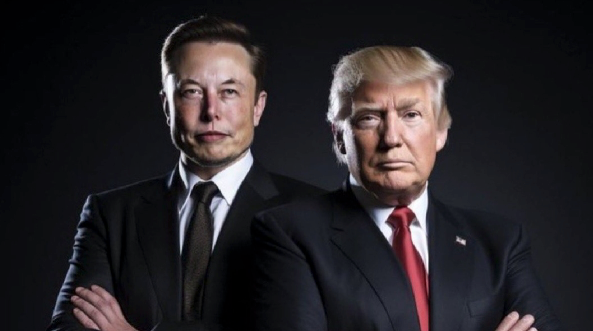Table of Contents
Donald Trump Discusses Deporting Elon Musk as Political Feud Escalates
What began as a strong alliance between President Donald Trump and billionaire entrepreneur Elon Musk has now spiralled into a dramatic public feud. Tensions have surged following disagreements over the President’s highly debated One Big Beautiful Bill Act, prompting Musk to launch fierce criticism and Trump to suggest — shockingly — that Musk’s immigration status might be revisited.
Once Allies, Now Rivals in a Political Firestorm
The world’s wealthiest man and the President of the United States were once seen as ideological allies. But that relationship appears to have fractured beyond repair. The turning point? President Trump’s signature bill — the One Big Beautiful Bill Act — which Musk claims could severely damage the American economy.
Taking to X (formerly Twitter), Musk lashed out at the proposed legislation, warning that it could “destroy America,” cost the country millions of jobs, and undermine innovation. His comments didn’t stop there — Musk even floated the possibility of launching his own political party if the bill goes through, signalling a dramatic shift away from his previous alignment with the Republican Party.
Trump Responds: A Remark That Shocks the Press
While Trump initially shrugged off the criticism, stating he wished Musk no harm, the tone changed drastically during a press interaction outside the White House. As he departed for a visit to an immigration detention centre in Florida, a reporter asked whether Musk could be deported.
President Trump replied: “I don’t know. We’ll have to take a look.”
The remark stunned many, given that Elon Musk is a naturalised U.S. citizen, originally born in South Africa. While the President did not confirm any legal proceedings, the implication stirred debate among legal experts and the public.
Could Elon Musk Actually Be Deported?
Legally, deporting a naturalised citizen is extremely rare, but technically not impossible. Under the Immigration and Nationality Act, the U.S. government can revoke citizenship (a process called denaturalisation) if it can prove that citizenship was acquired fraudulently.
Legal analysts have pointed to the case of Mahmoud Khalil as an example where foreign policy concerns led to deportation actions. However, in Musk’s case, such action would likely trigger a legal and political firestorm, especially given his global influence and long-standing contributions to the U.S. tech industry.
Behind the Feud: EV Tax Incentives and Financial Fallout
Some insiders suggest that Musk’s opposition to Trump’s bill stems from its stance on tax incentives for electric vehicles. With Tesla at the heart of Musk’s business empire, any change in tax policy could significantly impact his financial interests.
President Trump didn’t shy away from this theory. In a cryptic comment, he said: “We might have to put Doge on Elon. You know what Doge is? Doge is the monster that might have to go back and eat Elon.” The remark, while unclear, was seen as a veiled jab at Musk’s connections to cryptocurrency and perhaps a hint of further regulatory pressure.
Musk Hints at Political Move of His Own
Musk’s vow to form a new political party, if sincere, could pose a major threat to the Republican base — potentially splitting conservative votes and introducing a powerful third force into American politics.
With his massive social following, deep capital, and tech-driven influence, Musk is one of the few individuals with the means to disrupt the traditional two-party system. Whether this is a real political ambition or strategic posturing remains to be seen.
What This Feud Really Means for America
The Trump–Musk clash reflects a larger ideological rift between economic populism and technocratic libertarianism. It also underscores the fragility of political alliances when personal wealth, policy, and power collide.
More importantly, it raises questions about how much influence billionaires should wield in national politics — and what happens when two of the most powerful figures in the country turn against one another.
For now, the nation watches closely as the drama unfolds — with the potential to reshape not just public opinion, but the balance of power itself.
